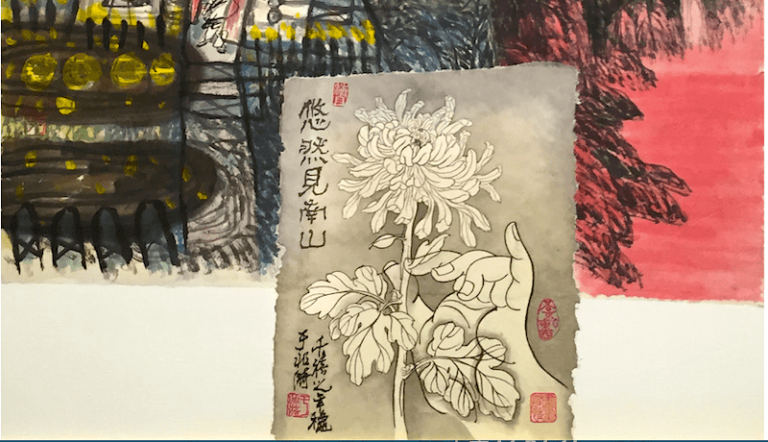
- Artist : Mr. Chau-yih Yu
As the atmosphere between Taiwan and China becomes increasingly friendly, on April 26 2009, on behalf of their respective governments, the two non-governmental organizations – the Straits Exchange Foundation (SEF) and the Association for Relations Across the Taiwan Straits (ARATS) – signed a declaration which, among other things, opens the doors to Chinese investment in Taiwan. Three days later Far EasTone Telecommunications Limited, one of the leading mobile operators in Taiwan, announced its plans for a strategic cooperation agreement and a share subscription agreement with China Mobile Limited, the world’s largest mobile telecommunications operator with approximately 477 million subscribers.
If approved by the authorities, the cooperation agreement will be the first direct Chinese investment in Taiwan since the Communist Party came to power in 1949. The terms of the agreements can be summarized as follows:
• Under the terms of transaction, China Mobile will acquire over 444 million new Far EasTone Telecommunications shares, issued through private placement, representing 12% of Far EasTone Telecommunications’s enlarged capitalization, in a transaction worth approximately NT$17.77 billion (US$533 million) – equivalent to NT$40 a share. China Mobile will acquire a seat on the board of directors.
• The two parties will create a joint venture in China to facilitate the provision of telecommunications services to their subscribers.
• The mutual strategic development will involve joint purchases and the development of roaming services, data and value-added businesses, and upgrades of networks and technology. Under the agreement, Far EasTone Telecommunications will provide a testbed for Taiwan’s software providers and manufacturers that are interested in the third-generation (3G) technology Time Division-Synchronous Code Division Multiple Access, a unique 3G standard adopted by the Chinese government.
At the time of the signing the agreements, laws remained in effect prohibiting Chinese companies from directly investing in Taiwanese business. Douglas Hsu, chairman of Far EasTone Telecommunications, expressed the hope that the deal could be done in
the fourth quarter of 2009, once the new regulations governing Chinese investment can be passed.
However, a new law announced on May 25 2009 prohibits Chinese investment in Type I telecommunication operators.
Pursuant to the newly enacted Regulation Governing the Permission of the People from Mainland China Investing in Taiwan, investment by a Chinese entity representing more than 10% of the stocks of a Taiwanese listed company would require permission from the investment authority. In addition, the new regulation lists 99 industries into which Chinese entities may invest, and sets out investment quotas and investment ratios.
Under the regulation, a Chinese entity may invest in Type II telecommunications businesses (eg, data storage and retrieval or Voice over Internet Protocol service providers), but investment in Type I telecommunication businesses – including mobile telecommunications service providers, such as Far EasTone Telecommunications – is still prohibited, even if such investment is made through a subsidiary which is wholly or partly owned by a Chinese company.
In addition to the above requirements, the limitation on foreign investment provided in the Telecommunication Act still applies to Chinese investment. Pursuant to Article 12 (3), the total direct shareholding by foreign entities must not exceed 49% and the sum of direct and indirect shareholding by foreign entities must not exceed 60%. However, Hsu recently stated that his company’s foreign investment would remain below this statutory cap, even after China Mobile’s proposed acquisition of a 12% stake.
Hsu further stated that Far EasTone Telecommunications is content to wait for relaxation of the restriction on Chinese Investment in Type I communications businesses, and that even if the restriction were to remain in place, China Mobile might decide to continue the investment through the Qualified Domestic Institutional Investor mechanism.
Allowing Chinese investment in regulated industries is never easily achieved. According the statutory requirements, if and when the restriction on Chinese investment in Type I telecommunication business is lifted, the agreements between Far EasTone Telecommunications and China Mobile will need approval from numerous governmental authorities. The Taiwanese authorities in question are the Investment Commission of Economic Affairs Ministry, the National Communications Commission and the Mainland Affair Council. In China, approval will be required from the State Council, the State-owned Assets Supervision and Administration Commission, the Ministry of Industry and Information Technology and the Taiwan Affairs Office.

